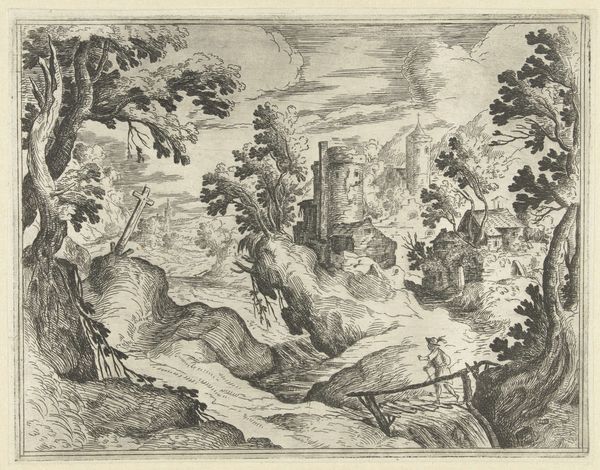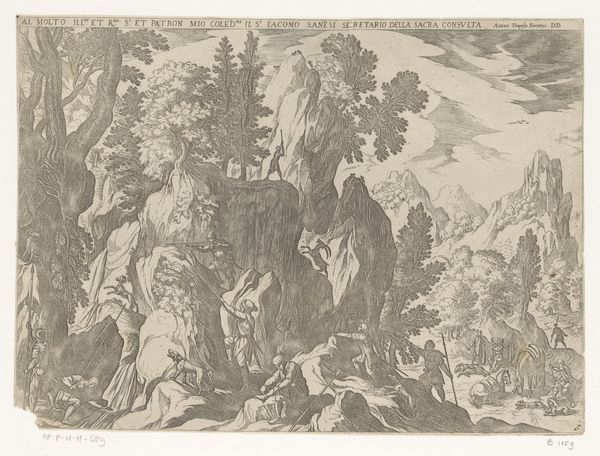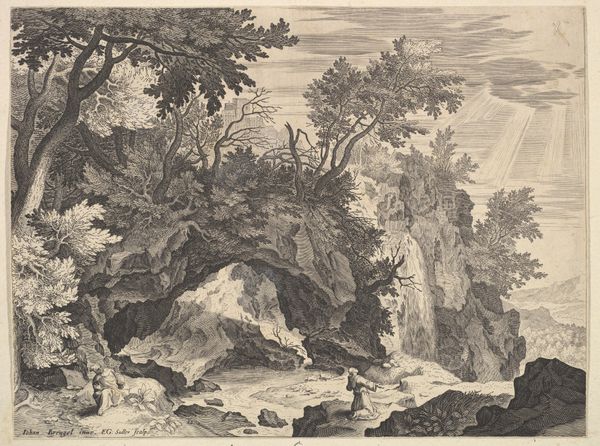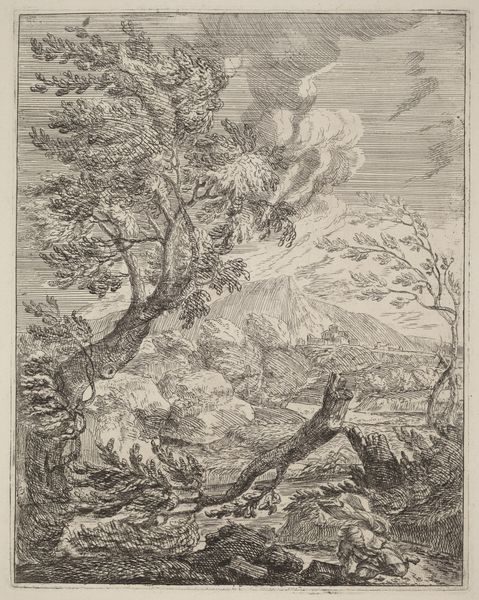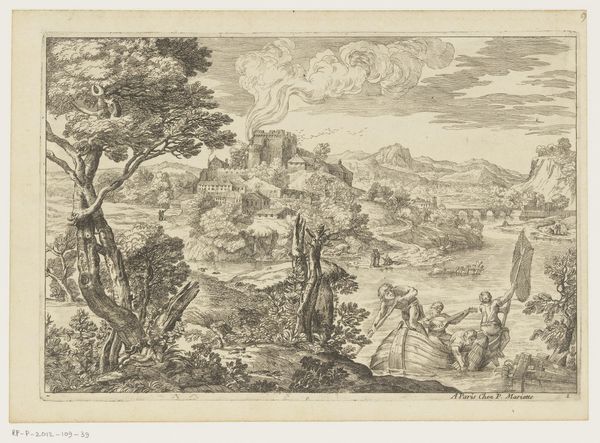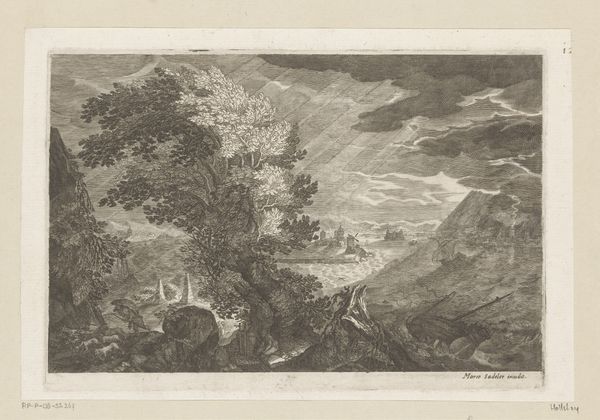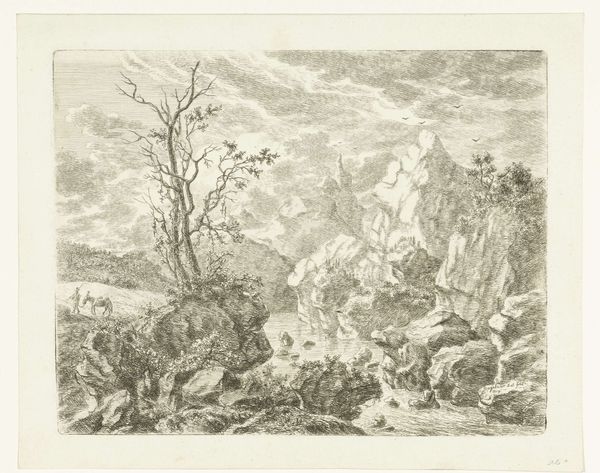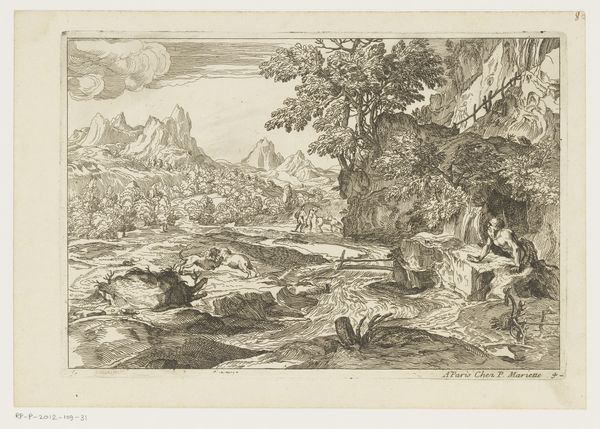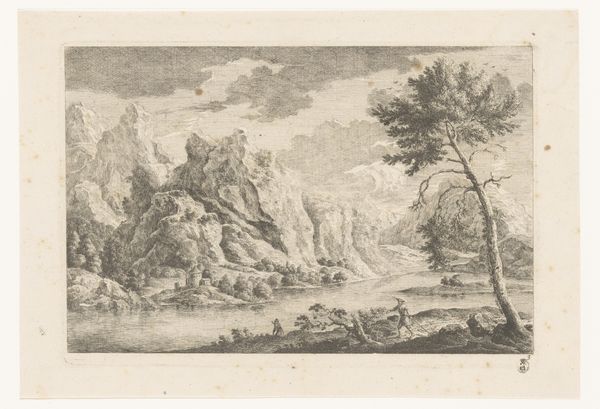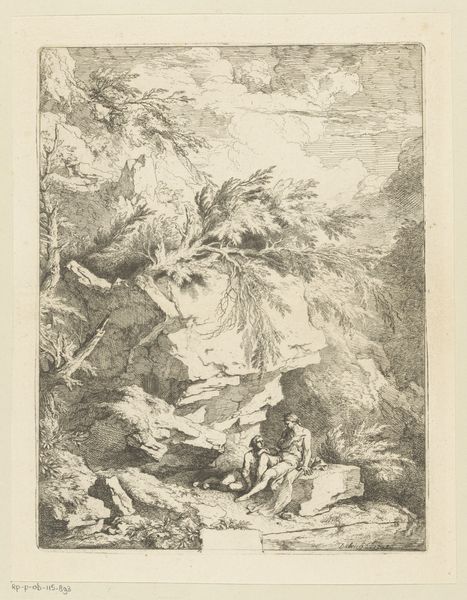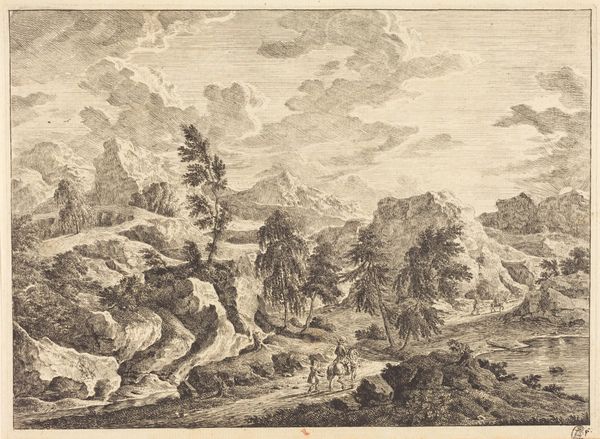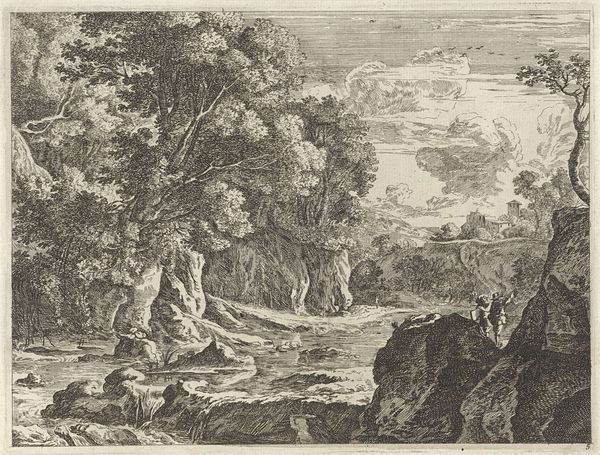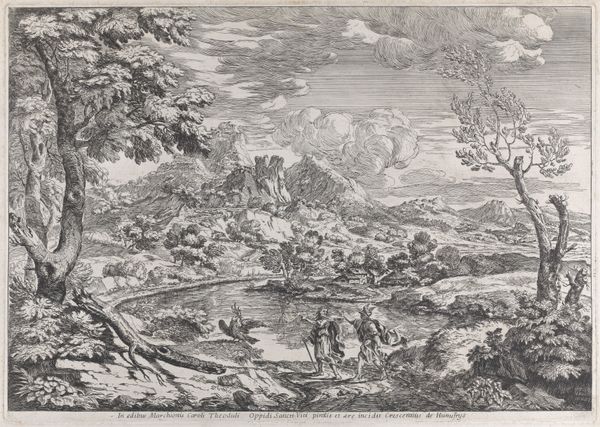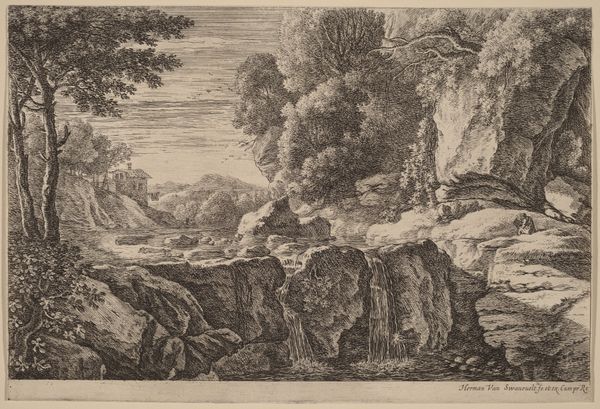
engraving
#
natural stone pattern
#
baroque
#
landscape
#
line
#
history-painting
#
engraving
#
monochrome
Dimensions: height 536 mm, width 712 mm
Copyright: Rijks Museum: Open Domain
Editor: So this is "Rocky Landscape with Saint Jerome and a Waterfall," an engraving by Isaak Major from 1622. It's monochrome, and quite striking. I'm drawn to the incredible detail achieved just through line work. What stands out to you in this piece? Curator: For me, it’s all about understanding the conditions under which this image was produced and consumed. Look closely at the line work; consider the intense labor involved in creating such detail on the engraving plate. How was Major situated within the artistic economy of his time? Was he producing this for an elite audience or a wider market? Editor: That's interesting, I was focused on the aesthetic, but now I'm thinking about the practical side. How readily available would this engraving have been? Was it considered a luxury item? Curator: Exactly! And the material itself – copper. Where did it come from? Who mined it? The print’s monochrome nature also limits it, wouldn’t you agree? Think about how the decision to use only one color affected production costs. Perhaps color printing was too expensive for the target consumer. Editor: I hadn’t considered the source and cost of materials at all. The image now tells a different story – not just about St. Jerome, but about labour, trade and market forces. Curator: Precisely! It shifts our understanding of the piece away from a purely aesthetic appreciation toward recognizing the socioeconomic context of its making and circulation. Editor: This engraving is much more complex than I initially thought. Considering the materials and production really opened my eyes. Curator: Agreed. Thinking about art this way provides a deeper understanding of our material culture.
Comments
No comments
Be the first to comment and join the conversation on the ultimate creative platform.
